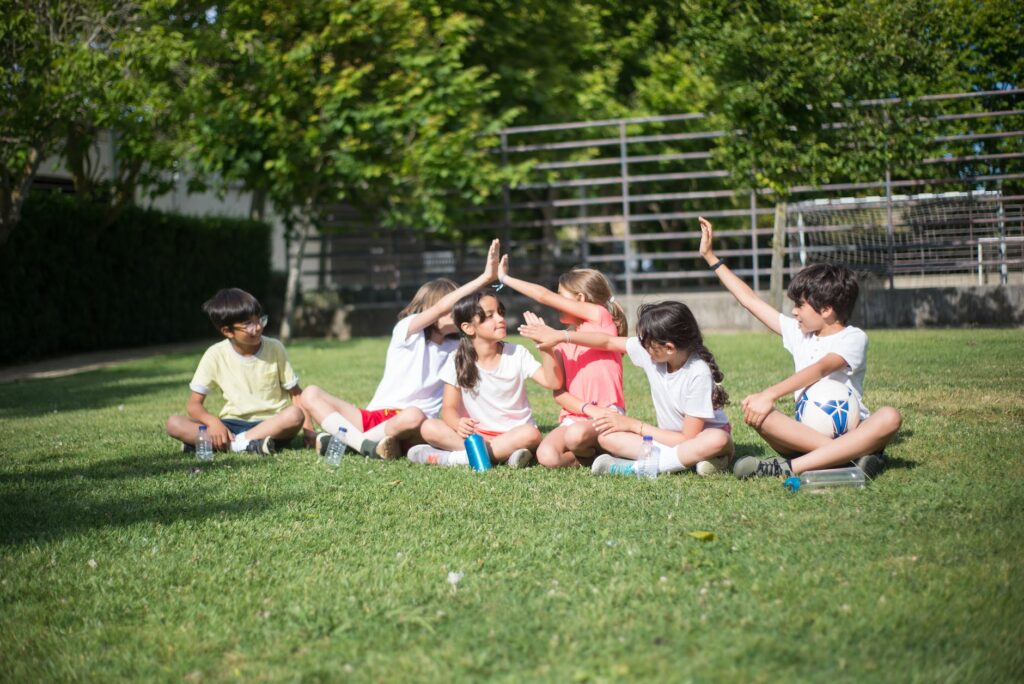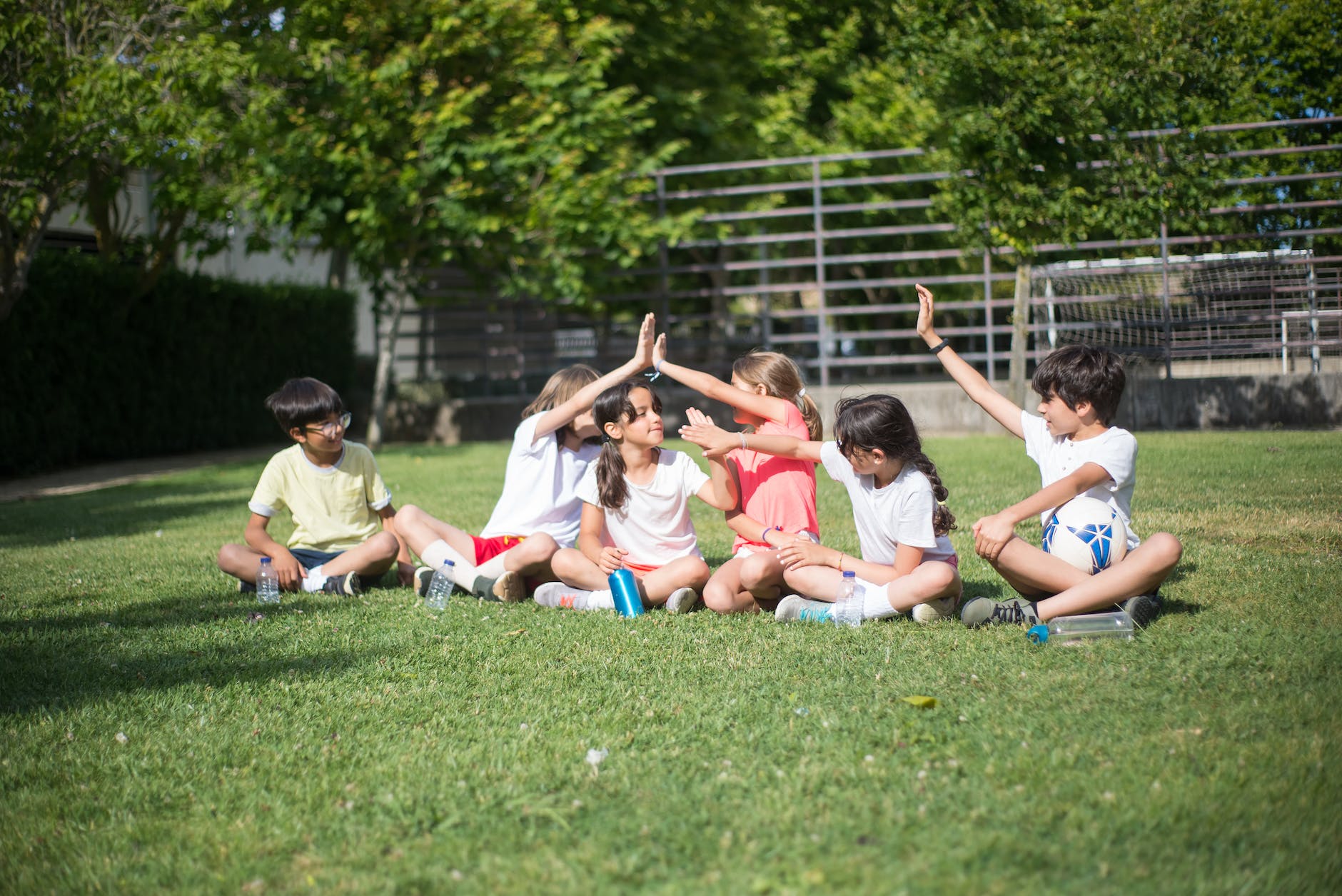
How Can I Help My Son Make Friends? Proven Strategies for Parents
As parents, we naturally want the best for our children, and seeing them thrive socially is a key part of that. If you’re asking yourself, “How can I help my son make friends?”, you’re not alone. Many parents grapple with this question, especially if their child seems to be struggling in social situations. This article provides actionable strategies, grounded in research and expert advice, to empower your son to build meaningful friendships.
Building friendships is crucial for a child’s development. Strong social connections contribute to emotional well-being, improved academic performance, and the development of essential social skills. A child with friends is often happier, more confident, and better equipped to navigate the challenges of growing up. If your son is finding it difficult to connect with his peers, there are several steps you can take to support him.
Understanding the Challenges
Before diving into solutions, it’s important to understand why your son might be struggling to make friends. Several factors can contribute to this:
- Shyness or Social Anxiety: Some children are naturally more reserved and may find it difficult to initiate conversations or join group activities.
- Lack of Social Skills: Children may not have learned the necessary social skills, such as how to introduce themselves, how to listen actively, or how to resolve conflicts.
- Different Interests: Your son may have interests that differ from those of his peers, making it harder to find common ground.
- Environmental Factors: Changes in school, moving to a new neighborhood, or even the dynamics of the classroom can impact a child’s ability to form friendships.
- Underlying Conditions: In some cases, difficulties making friends can be a sign of an underlying condition such as Autism Spectrum Disorder (ASD) or social communication disorder. If you suspect this, consult with a pediatrician or child psychologist.
Practical Strategies to Help Your Son Make Friends
Now, let’s explore some practical strategies you can implement to help your son build his social skills and make friends:
Create Opportunities for Social Interaction
One of the most effective ways to help your son make friends is to provide him with opportunities to interact with other children. This could involve:
- Playdates: Arrange playdates with children from his class or neighborhood. Start with one-on-one playdates in a comfortable environment, like your home or a local park.
- Extracurricular Activities: Enroll him in activities that align with his interests, such as sports, music lessons, art classes, or scouting. These activities provide a structured setting for him to meet like-minded children. [See also: Choosing the Right Extracurricular Activities for Your Child]
- Group Activities: Look for group activities in your community, such as library story times, community sports leagues, or youth groups.
- Summer Camps: Summer camps offer a fantastic opportunity for children to make new friends in a fun and engaging environment.
Teach Social Skills
Many children benefit from explicit instruction in social skills. Here are some key skills to focus on:
- Initiating Conversations: Teach your son how to start a conversation by asking simple questions, making a comment about the environment, or offering a compliment. Role-play different scenarios to help him practice.
- Active Listening: Emphasize the importance of listening attentively to others. Teach him to make eye contact, nod, and ask clarifying questions.
- Sharing and Taking Turns: These are fundamental social skills that are essential for successful interactions. Practice these skills at home during playtime.
- Conflict Resolution: Teach your son how to resolve conflicts peacefully and respectfully. Help him understand the importance of compromise and finding solutions that work for everyone involved.
- Reading Social Cues: Help your son learn to recognize and interpret nonverbal cues, such as facial expressions, body language, and tone of voice. This will help him better understand how others are feeling and respond appropriately.
Role-Playing and Modeling
Role-playing is a powerful tool for teaching social skills. Practice different social scenarios with your son, such as introducing himself, asking someone to play, or dealing with disagreements. Model appropriate social behavior in your own interactions with others. Children learn by observing their parents, so be mindful of the example you set. For example, demonstrate how you initiate conversations, listen actively, and resolve conflicts in a constructive manner. By modeling these behaviors, you provide your son with a tangible framework for his own social interactions.
Boost His Confidence
Confidence is key to social success. Help your son build his self-esteem by:
- Focusing on Strengths: Identify your son’s strengths and talents and encourage him to pursue activities that showcase them.
- Providing Positive Reinforcement: Offer praise and encouragement when he demonstrates positive social behaviors.
- Avoiding Criticism: Be mindful of your criticism. Focus on constructive feedback rather than dwelling on his shortcomings.
- Celebrating Small Victories: Acknowledge and celebrate even small steps forward in his social development.
Address Bullying
If your son is being bullied, it’s crucial to intervene immediately. Bullying can have a devastating impact on a child’s self-esteem and social development. Talk to your son about what’s happening and let him know that it’s not his fault. Work with the school to address the bullying and create a safe environment for your son. Teach him strategies for dealing with bullies, such as ignoring them, walking away, or seeking help from an adult. [See also: Protecting Your Child from Bullying: A Parent’s Guide]
Communicate with Teachers and School Staff
Your son’s teachers and school staff can be valuable allies in helping him make friends. Communicate with them about your concerns and ask for their support. They may be able to provide insights into your son’s social interactions at school and offer suggestions for how to help him connect with his peers. They may also be able to facilitate opportunities for your son to interact with other children, such as pairing him with a buddy or including him in group projects.
Limit Screen Time
Excessive screen time can hinder a child’s social development. Encourage your son to spend less time on electronic devices and more time engaging in real-world interactions. Limit his screen time and encourage him to participate in activities that involve face-to-face interaction with other children. This will give him more opportunities to practice his social skills and build relationships.
Be Patient and Supportive
Making friends takes time and effort. Be patient and supportive as your son navigates the challenges of social development. Avoid putting pressure on him to make friends quickly. Instead, focus on providing him with the tools and support he needs to build his confidence and social skills. Let him know that you’re there for him and that you believe in him. Your unwavering support will make a significant difference in his ability to form meaningful friendships.
When to Seek Professional Help
If your son continues to struggle with making friends despite your best efforts, it may be time to seek professional help. A child psychologist or therapist can provide specialized support and guidance to help him overcome his social challenges. They can assess his social skills, identify any underlying issues, and develop a tailored treatment plan. Don’t hesitate to reach out for professional help if you’re concerned about your son’s social development.
The Long-Term Benefits of Friendship
It’s important to remember that the effort you invest in helping your son make friends will have long-term benefits. Strong social connections are essential for a child’s emotional well-being, academic success, and overall quality of life. By providing your son with the tools and support he needs to build meaningful friendships, you’re setting him up for a brighter and more fulfilling future. Knowing how can I help my son make friends and implementing these strategies is an investment in his happiness and well-being.
Ultimately, helping your son make friends is about equipping him with the skills and confidence he needs to navigate the social world. By creating opportunities for interaction, teaching social skills, boosting his confidence, and providing unwavering support, you can empower him to build meaningful friendships and thrive socially. Remember that every child is different, and what works for one child may not work for another. Be patient, persistent, and adaptable, and you’ll be well on your way to helping your son make friends and build a strong social network. And remember, asking “how can I help my son make friends” is the first step towards positive change.

